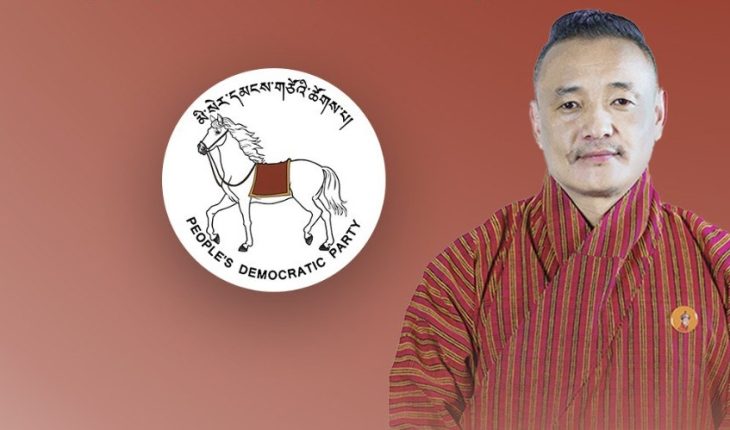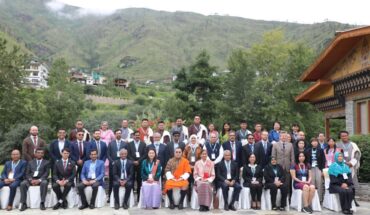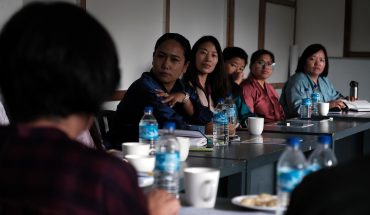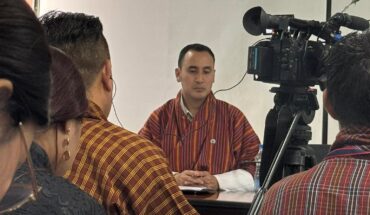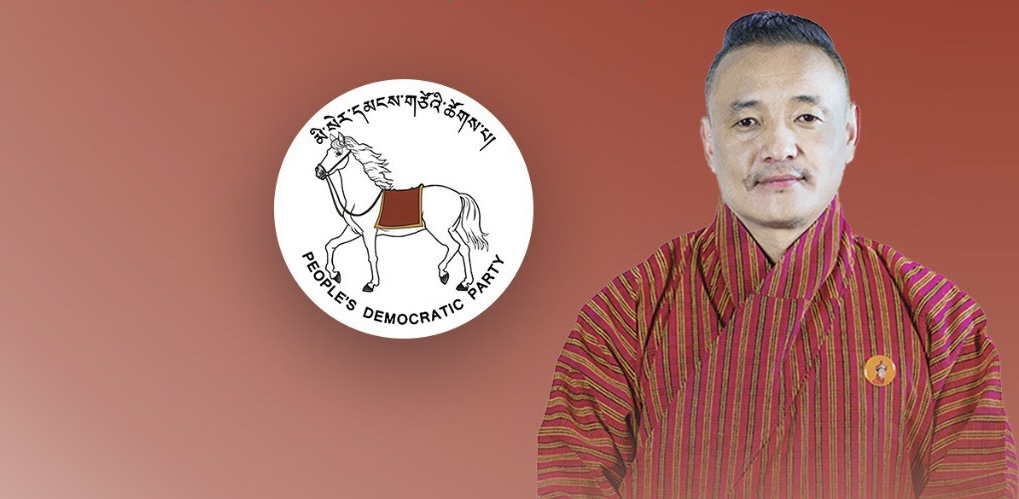
KINZANG DORJI TSHERING | Thimphu
The People’s Democratic Party (PDP) has won a decisive victory in the Nubi-Tangsibji bye-election , marking the party’s first-ever success in the constituency .
Candidate Phuntsho Dendup secured the seat with 1,452 votes, defeating Tashi Samdrup of the Bhutan Tendrel Party (BTP), who managed 1,079 votes.
The bye-election, held on September 4, drew a relatively low voter turnout. Of the 4,899 registered voters, only 2,531 cast their ballots — 2,265 men and 2,634 women.
The figures show a turnout of just above 51 percent, lower than the national averages seen in previous parliamentary elections, reflecting both the logistical challenges of the mountainous terrain and the dispersed nature of the constituency’s population.
Phuntsho Dendup clinched victory with 57.37 percent of the total votes cast, while his opponent, Tashi Samdrup, received 42.63 percent.
The breakdown revealed that Dendup earned 997 votes through Electronic Voting Machines (EVMs) and 455 postal ballots, while Samdrup secured 795 EVM votes and 284 postal ballots.
He also led in eight out of ten polling stations, consolidating PDP’s strength in what has historically been a stronghold of Druk Phuensum Tshogpa (DPT) and other parties.
For many local voters, participation in the bye-election was seen as an important civic duty.
“I voted because it is my responsibility as a citizen. Even if it’s just one vote, it matters for our future. I think Phuntsho Dendup winning is good for our community. He is younger, more energetic, and I hope he will push for better roads,” said Tashi, a farmer from Nubi.
Phuntsho Dendup’s campaign was rooted in the concerns of farmers and villagers, particularly the poor condition of rural roads.
Over several weeks, he traveled across chiwogs, speaking to people about farm road connectivity, maintenance challenges, and local development priorities.
Voters said he listened to issues ranging from the difficulty of transporting produce to market, the need for reliable access to schools and healthcare, and concerns over seasonal flooding affecting farmlands.
“I expected people to support me, but the contest turned out to be more competitive than I had imagined since this constituency has long been a strong base for other parties,” the PDP candidate said.
Emphasizing that voters are becoming more discerning, he added: “People are now mature and know whom to choose as their candidate, someone who will truly benefit them. Whether they supported me or not, I will serve everyone without bias, as the responsibility to serve equally rests on my shoulders.”
Looking ahead, Dendup pledges to push the government to fulfill development commitments in the constituency.
His priorities include base course work and stone soling for all farm roads, blacktopping of roads connecting larger chiwogs, and resurfacing and maintaining gewog center roads.
This victory marks a personal comeback for Phuntsho Dendup, who also contested in the 2023 parliamentary elections but lost to Tashi Dorji, the then-MP who was later convicted of child molestation.
Despite that defeat, Dendup’s persistence and renewed campaigning paid off in the bye-election, earning him strong local support.
His opponent, 53-year-old Tashi Samdrup, is a seasoned figure in Bhutanese politics.
He previously served as a Member of Parliament in the National Council during the third Parliament and later represented Nubi-Tangsibji in the fourth Parliament under the Druk Thuendrel Tshogpa.
Contesting under the BTP banner this time, Tashi Samdrup was widely expected to put up a strong fight given his familiarity with local voters. However, his campaign fell short against PDP’s momentum.
The BTP in a statement thanked the people of the Nubi-Tangsibji constituency for their active participation and strong support of their candidate.
“While we did not secure victory on this occasion, we are encouraged by your engagement and are confident that your continued support will be instrumental in our aim toward forming the next government,” the statement read.
The ruling party has now claimed victory in nearly all of the six bye-elections conducted since 2022. Analysts note that bye-elections often serve as an important test of a ruling party’s popularity mid-term.
In this case, PDP’s win in a constituency previously dominated by rival parties indicates shifting voter sentiments and possibly greater confidence in the ruling government’s policies.
ECB officials said while the victory was clear, the low voter turnout reflects a challenge facing Bhutan’s democratic process. More than 2,300 registered voters did not cast their ballots.
Election officials attribute this partly to the constituency’s geographic spread and the logistical difficulties voters face in traveling to polling stations.
Observers also point to growing voter fatigue, as the bye-election came not long after the 2023 parliamentary elections.
For the people of Nubi-Tangsibji, expectations now run high. “The biggest issue is the condition of our farm roads. Without proper roads, everything becomes difficult — from bringing goods to town to reaching hospitals,” said Wangchuk, a shopkeeper from Tangsibji.
Sharing his view on voter behavior, he remarked, “These days, I feel people vote more for the individual candidate than for the party. They look at who can actually deliver, not just which party they belong to.”
Meanwhile, the winning candidate’s assurance of non-partisan service — that he will represent both supporters and opponents equally — will be closely watched in the coming months.
Citizens like Tashi and Wangchuk will be monitoring whether his promises translate into tangible improvements, especially in road infrastructure and access to essential services.
For Trongsa, the election closes one chapter and opens another — with renewed hope for progress on the roads and farms that form the backbone of local livelihoods.

